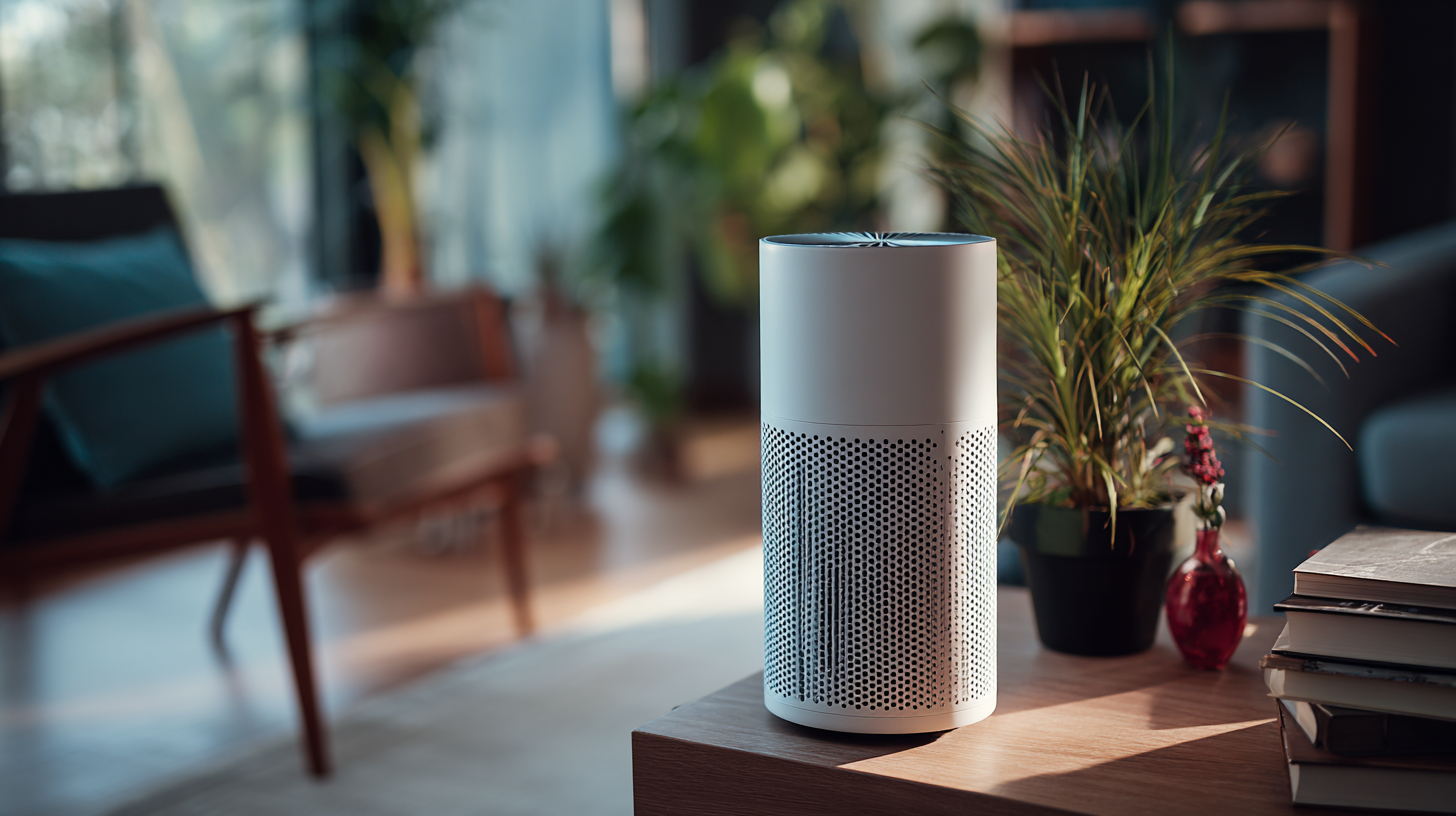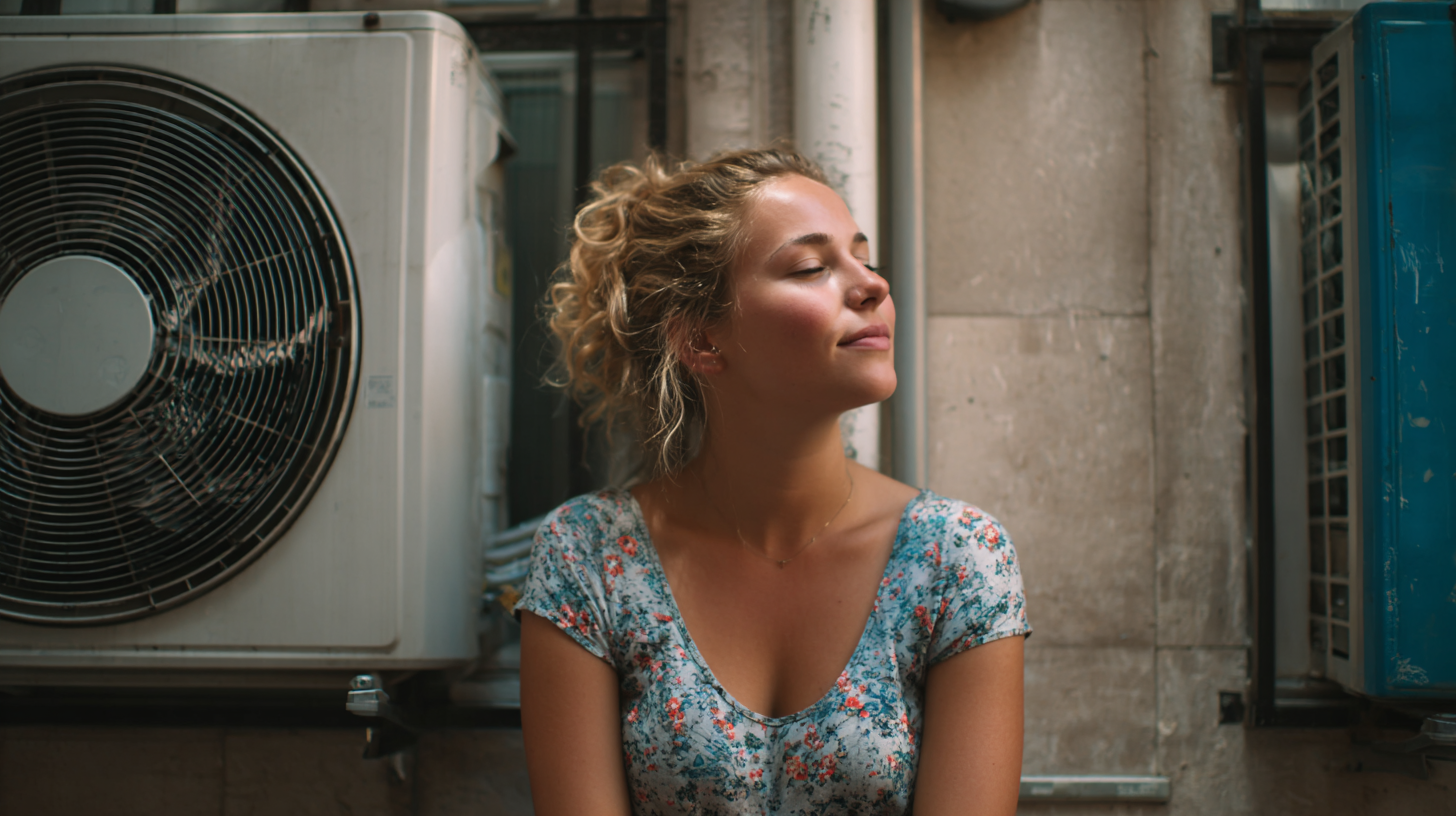 Air filters play a crucial role in maintaining indoor air quality, yet many consumers remain unaware of the hidden issues that could potentially affect their health. According to a report by the Environmental Protection Agency (EPA), indoor air can be up to five times more polluted than outdoor air, largely due to particulate matter and volatile organic compounds that can accumulate in our living spaces. A study by the American Lung Association found that nearly 50% of households have air that is unhealthy to breathe, highlighting the importance of effective air filtration systems.
Air filters play a crucial role in maintaining indoor air quality, yet many consumers remain unaware of the hidden issues that could potentially affect their health. According to a report by the Environmental Protection Agency (EPA), indoor air can be up to five times more polluted than outdoor air, largely due to particulate matter and volatile organic compounds that can accumulate in our living spaces. A study by the American Lung Association found that nearly 50% of households have air that is unhealthy to breathe, highlighting the importance of effective air filtration systems.
However, not all air filters are created equal; factors such as MERV rating, filter type, and maintenance frequency can significantly impact their performance. In this blog, we will delve into the common misconceptions surrounding air filters, explore various types available on the market, and examine how these elements can shape both air quality and overall health.
 Poor air quality can have significant health implications, and one of the often-overlooked contributors to this issue is ineffective air filters. When air filters fail to trap pollutants, allergens, and particulate matter, these harmful particles remain in the air we breathe. This can exacerbate respiratory issues, lead to chronic illnesses, and compromise overall well-being. It's crucial to understand how the inefficiency of air filters can silently impact your health over time.
Poor air quality can have significant health implications, and one of the often-overlooked contributors to this issue is ineffective air filters. When air filters fail to trap pollutants, allergens, and particulate matter, these harmful particles remain in the air we breathe. This can exacerbate respiratory issues, lead to chronic illnesses, and compromise overall well-being. It's crucial to understand how the inefficiency of air filters can silently impact your health over time.
To ensure your air filters are working effectively, regularly check and replace them according to the manufacturer's recommendations. A good tip is to consider the MERV rating of the filter; higher ratings typically indicate better filtration capabilities. Additionally, maintaining proper humidity levels in your home can help reduce the proliferation of mold and dust mites, making your living environment healthier.
Another important consideration is the placement and type of air filter in your HVAC system. Using high-efficiency particulate air (HEPA) filters can significantly improve the air quality in your home. Furthermore, be mindful of outdoor air quality, as it can infiltrate your indoor spaces. On days with high pollution levels, keeping windows and doors closed can be a simple yet effective way to protect your health.
When it comes to maintaining healthy indoor air quality, air filters play a critical role. However, many people overlook common hidden issues that can significantly affect their health. For instance, a 2021 study by the Environmental Protection Agency revealed that indoor air pollution can be two to five times worse than outdoor levels, highlighting the need for proper air filtration. Yet, if air filters are not replaced regularly or are of poor quality, they can lead to recirculating dust, allergens, and even harmful mold spores.
Moreover, the presence of mold in less obvious areas of your home, like your bathroom, can further exacerbate indoor air quality issues. Mold can thrive in damp, hidden spaces, indicating potential leaks or stagnant moisture, and can release mycotoxins into the air. According to the World Health Organization, exposure to mold can lead to respiratory problems and allergic reactions, underscoring the importance of not just replacing air filters but also checking for hidden mold sources. By being vigilant about these often-overlooked aspects, you can ensure a healthier indoor environment and reduce your risk of health complications related to poor air quality.
When it comes to maintaining indoor air quality, the significance of selecting the right air filter cannot be overstated. Not all air filters are created equal, and making an informed choice can have profound implications for your health. High-efficiency particulate air (HEPA) filters are often recommended for their ability to trap 99.97% of particles as small as 0.3 microns. By effectively removing allergens, dust, and even some bacteria and viruses, HEPA filters can help alleviate respiratory conditions and improve overall well-being.
Additionally, it’s crucial to consider the filter’s MERV rating, which indicates its effectiveness in capturing contaminants. Filters with a higher MERV rating capture smaller particles but may restrict airflow if not compatible with your HVAC system. Therefore, balancing filtration efficiency with system performance is essential. Furthermore, regular maintenance, including timely replacement of filters, ensures continued effectiveness. By choosing the right air filter tailored to your specific needs and ensuring its upkeep, you’re taking proactive steps toward creating a healthier living environment.
| Air Filter Type | Common Issues | Health Impacts | Ideal Usage |
|---|---|---|---|
| HEPA Filters | Reduced Efficiency Over Time | Respiratory Issues Due to Unfiltered Particles | Use in Allergic or Asthmatic Environments |
| Activated Carbon Filters | Saturation Leads to Odors | Potential Inhalation of Harmful Compounds | Best for Odor Control |
| Electrostatic Filters | Can Collect Static Charges | Headaches and Fatigue from Charge Buildup | General Home Use |
| Fibreglass Filters | Low Filtration Efficiency | Increased Irritation of Respiratory System | Use in Less Polluted Environments |
When it comes to maintaining a healthy indoor environment, the condition of your air filter plays a crucial role. Recognizing the signs that your air filter needs immediate replacement can prevent potential health issues caused by poor air quality. One major sign to look for is reduced airflow. If you notice that your HVAC system struggles to circulate air effectively, your filter may be clogged and needs changing.
Another important indicator is a change in air quality. If you experience increased allergies, respiratory issues, or a persistent musty odor, it's time to check your air filter. Dust and allergens can accumulate in a dirty filter, leading to worsened symptoms. Additionally, regularly inspecting your filter for visible dirt or discoloration can serve as a helpful reminder of when to replace it.
Tips for maintaining your air filter include checking it monthly and replacing it every 1-3 months, depending on usage and environmental factors. Using high-efficiency particulate air (HEPA) filters can also significantly improve air quality. Lastly, consider scheduling routine HVAC maintenance to ensure your system operates efficiently, which can prolong the life of your air filters and safeguard your health.

Maintaining air filters is crucial for ensuring a healthy indoor environment. Regular maintenance helps to trap allergens, dust, and pollutants that can exacerbate respiratory issues and other health concerns. One effective tip is to check your air filter monthly and replace it every three months, or sooner if it appears dirty or clogged. This not only keeps your air clean but also ensures your HVAC system operates efficiently, reducing energy bills and prolonging equipment life.
In addition to regular changes, consider the type of air filter you use. HEPA filters, for instance, are designed to capture 99.97% of particles as small as 0.3 microns, which includes pollen, pet dander, and smoke. Upgrading to a higher quality filter can significantly reduce the number of harmful contaminants in the air, promoting better health outcomes. Moreover, don't forget to clean the surrounding area of the filters; dust buildup can circulate back into your living space if neglected.
By applying these expert tips, you can enhance indoor air quality and safeguard your family's health.






